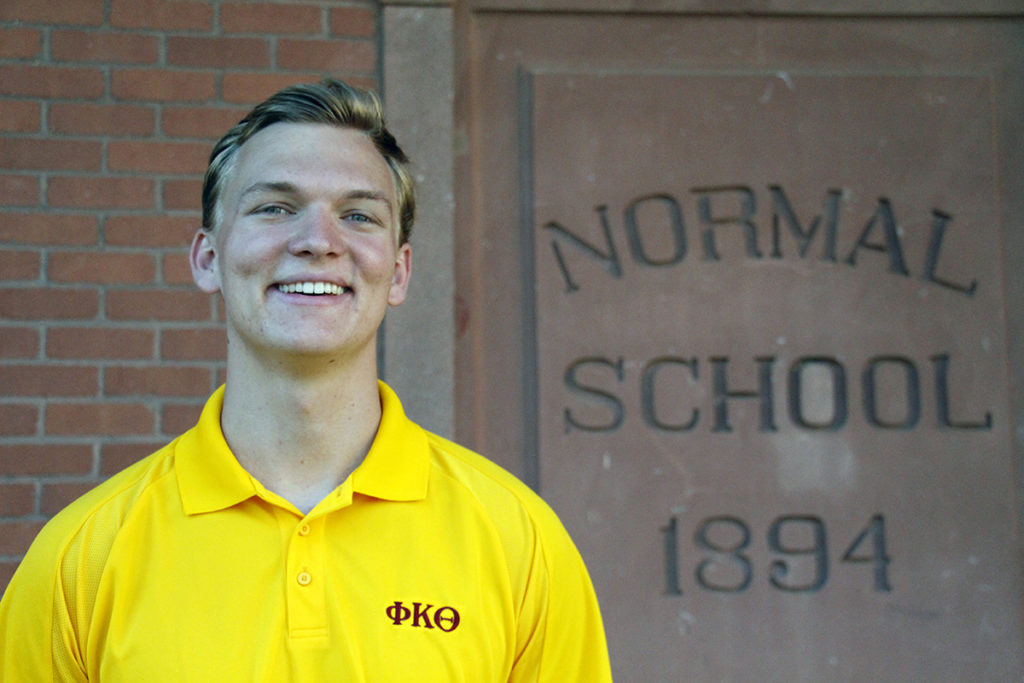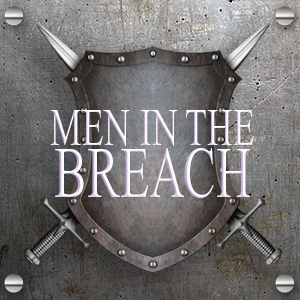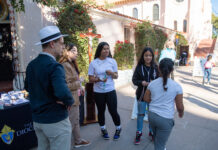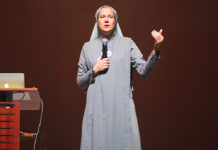

Half of the men Kevin Murphy referred to as “uncle” growing up were actually his dad’s fraternity brothers.
So freshmen year at Arizona State University — his dad’s alma mater — had Murphy eager to form similar bonds within the same fraternity. Turns out that fraternity’s status by then, the same one the priestly director at the All Saints Catholic Newman Center was in with Murphy’s dad, was listed as an “off campus” one.
“That means they’ve probably done something they probably shouldn’t have and the university said ‘You shouldn’t be associated with us,’” Murphy told The Catholic Sun immediately after rush activities settled down earlier this month.

“I was turned off by the whole fraternity idea,” the ASU sophomore said.
That was early on in his freshman year. By the spring, some friends and roommates he knew since his days at St. Thomas the Apostle School and Veritas Preparatory Academy had discovered Phi Kappa Theta.
The fraternity, chartered in May at ASU, has 46 full-fledged collegiate chapters and two colony chapters in formation nationwide.
Its mission is to develop men to be intellectual and effective leaders who passionately serve society, one another and God. Though rooted in the Church, it’s open to non-Catholics.
“We joined that in the hopes of growing it to be the size of a regular fraternity, but with a moral duty to each other,” Murphy said.
“Regular” fraternities average 80 to 90 members. ASU’s Phi Kappa Theta chapter has 37 names on its charter — including Murphy’s — and 46 members now.
Still, introducing the idea of a new fraternity has its challenges. Murphy, who joined the rush committee and is design chairman, said those in Greek life tend to roll their eyes when they hear about the freshmen fraternity. Those not in Greek life try to look out for all of the stereotypes.
Greek life for Catholics
Phi Kappa Theta nationwide
Mu Epsilon Theta nationwide
“We’re fighting an uphill battle for sure, but there’s a lot to be said about a group of guys who are in it for each other,” said Murphy, a finance major in business data analytics.
Within one block of the home Murphy shares with his Catholic roommates sit two other homes shared by his fraternity brothers. That’s not to say they keep to themselves. Their fraternity is big on being visible on campus, genuine and inviting to prospective members.
“We can go out and just be really good guys around other people and they’ll get a good idea of what we’re doing without having to Bible-thump,” Murphy said.
Case in point: not all of the friends Murphy gained freshman year were initially on board with the idea of him joining a fraternity. Some cited the stigma of wild parties and profanity.
“When they found out it was Catholic, it kind of seemed like a contradiction all around,” Murphy said.
Some of those friends have since joined with others showing interest. Phi Kappa Theta has also found the Barrett Honors College to be a breeding ground for new members — a far cry from ASU’s days as a party school. Murphy, himself an honors student, said Greek Life representatives line up outside of the college giving their pitch. Most Phi Kappa Theta members belong to Barrett.
When it comes to Bishop Thomas J. Olmsted’s apostolic exhortation to men, “Into the Breach,” Murphy sees his fraternity embracing the call to true masculinity. He said it gives men a reason to grow and become better. That’s just what Phi Kappa Theta members do.





